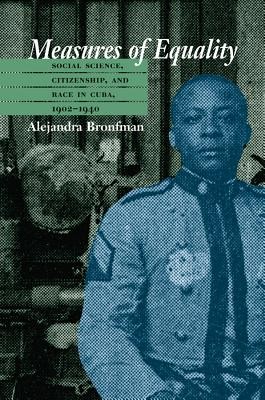
- We will send in 10–14 business days.
- Author: Alejandra M Bronfman
- Publisher: University of North Carolina Press
- ISBN-10: 0807855634
- ISBN-13: 9780807855638
- Format: 15.8 x 23.6 x 1.7 cm, softcover
- Language: English
- SAVE -10% with code: EXTRA
Reviews
Description
In the years following Cuba's independence, nationalists aimed to transcend racial categories in order to create a unified polity, yet racial and cultural heterogeneity posed continual challenges to these liberal notions of citizenship. Alejandra Bronfman traces the formation of Cuba's multiracial legal and political order in the early Republic by exploring the responses of social scientists, such as Fernando Ortiz and Israel Castellanos, and black and mulatto activists, including Gustavo Urrutia and Nicolas Guillen, to the paradoxes of modern nationhood.
Law, science, and the social sciences--which, during this era, enjoyed growing status in Cuba as well as in many other countries--played central roles in producing knowledge and shaping social categories in postindependence Cuba. Anthropologists, criminologists, and eugenicists embarked on projects intended to employ the tools of science to rid Cuba of the last vestiges of a colonial past. Meanwhile, the legal arena created both new freedoms and new modes of repression. Black and mulatto intellectuals and activists, working to ensure that citizenship offered concrete advantages rather than empty promises, appropriated changing social scientific and legal categories and turned them to their own uses. In the midst of several decades of intermittent racial violence and expanding social and political mobilization by Cubans of African descent, debates among intellectuals and activists, state officials, and legislators transformed not only understandings of race, but also the terms of citizenship for all Cubans.
EXTRA 10 % discount with code: EXTRA
The promotion ends in 19d.11:47:13
The discount code is valid when purchasing from 10 €. Discounts do not stack.
- Author: Alejandra M Bronfman
- Publisher: University of North Carolina Press
- ISBN-10: 0807855634
- ISBN-13: 9780807855638
- Format: 15.8 x 23.6 x 1.7 cm, softcover
- Language: English English
In the years following Cuba's independence, nationalists aimed to transcend racial categories in order to create a unified polity, yet racial and cultural heterogeneity posed continual challenges to these liberal notions of citizenship. Alejandra Bronfman traces the formation of Cuba's multiracial legal and political order in the early Republic by exploring the responses of social scientists, such as Fernando Ortiz and Israel Castellanos, and black and mulatto activists, including Gustavo Urrutia and Nicolas Guillen, to the paradoxes of modern nationhood.
Law, science, and the social sciences--which, during this era, enjoyed growing status in Cuba as well as in many other countries--played central roles in producing knowledge and shaping social categories in postindependence Cuba. Anthropologists, criminologists, and eugenicists embarked on projects intended to employ the tools of science to rid Cuba of the last vestiges of a colonial past. Meanwhile, the legal arena created both new freedoms and new modes of repression. Black and mulatto intellectuals and activists, working to ensure that citizenship offered concrete advantages rather than empty promises, appropriated changing social scientific and legal categories and turned them to their own uses. In the midst of several decades of intermittent racial violence and expanding social and political mobilization by Cubans of African descent, debates among intellectuals and activists, state officials, and legislators transformed not only understandings of race, but also the terms of citizenship for all Cubans.


Reviews